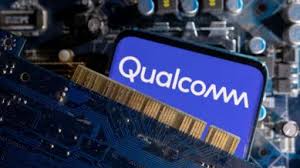In a U.S. federal court trial, a jury determined that Qualcomm’s central processors are appropriately licensed under an agreement with Arm Holdings, which eliminated some but not all of the doubt surrounding the mobile chipmaker’s entry into the laptop market.
After a week of courtroom arguments and deliberations, the trial between the two chip titans ended in a mistrial when the jury could not decide on one of the three questions.
Qualcomm said the result affirmed its right to innovate, but Arm vowed to seek a new trial.
Laptops 1000Following the news, Qualcomm’s shares were up 1.8% in extended trade, while Arm’s shares were down 1.8%.
Because of the verdict, the matter may be tried again, which Arm promised to do in a statement after the verdict.
Judge Maryellen Noreika heard the matter in a U.S. federal court in Delaware and urged Arm and Qualcomm to resolve their disagreement through mediation.
“I don’t think either side had a clear victory or would have had a clear victory if this case is tried again,” Noreika stated to the parties.
After more than nine hours of discussion over two days, the eight-member jury was unable to reach a unanimous decision on whether startup Nuvia violated the conditions of its license with Arm.
However, the jury determined that Qualcomm, which paid $1.4 billion to acquire Nuvia in 2021, had not violated that agreement.
Additionally, the jury determined that Qualcomm’s chips—developed using Nuvia technology and essential to the company’s entry into the personal computer market—are appropriately licensed under its contract with Arm, allowing Qualcomm to keep selling them.
“The jury has vindicated Qualcomm’s right to innovate and affirmed that Qualcomm’s contract with Arm protects all the Qualcomm products at issue in the case,” Qualcomm stated.
A representative for Arm stated that the firm was “disappointed” that the jury could not “reach consensus” about the company’s claims and that the company’s intellectual property protection had always been the main objective.

















